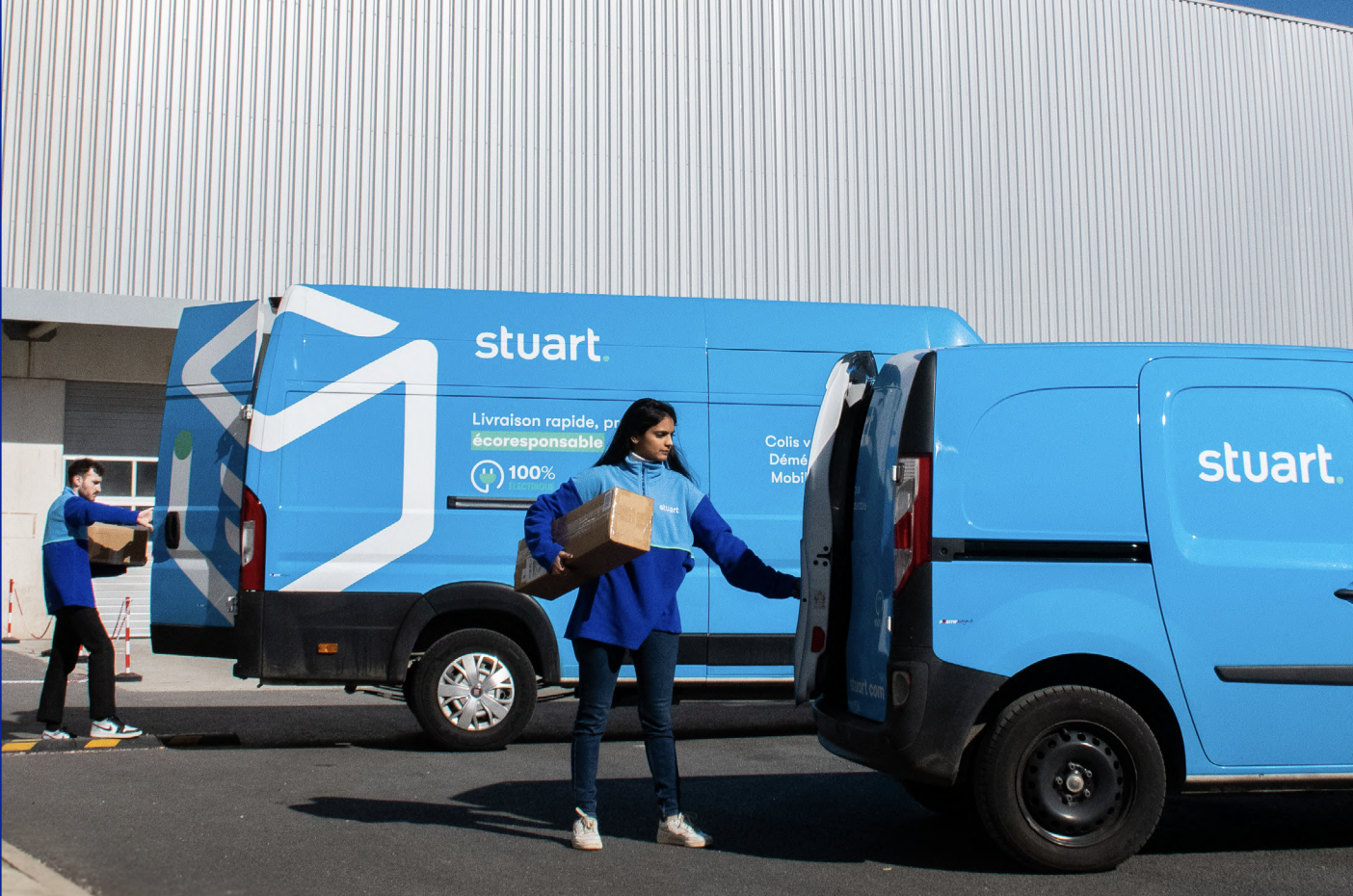It would be impossible not to acknowledge the result of last week’s referendum in the UK, which saw 51% of the electorate side with the Leave campaign. Much has been said – and much more has yet to be said – about the political, economic, and even social turmoil that has followed. Picking over everything in detail is a job for someone other than the editor of eDelivery, of course, suffice to say that reports concerning an increase of racist abuse on the streets of the UK are even more troubling than the uncertainty that has hit the markets.
Within hours of the result being confirmed, I was contacted by several people offering opinions, comments and perspectives. While there is little certainty surrounding the eventual outcome of it all, here are a few of those comments.
According to delivery management company Scurri, which is based in Ireland, as much as €33.4bn could be lost to the ecommerce sector, saying that in 2015 €455bn was spent online by European consumers, €157bn of which was from the UK alone. For 2016, this figure is expected to reach over €510bn for the whole of Europe but the UK’s expected increase of €33.4bn to €173.6bn in 2016 could be lost as a consequence of the Leave vote succeeding.
Rory O’Connor, founder and chief executive of Scurri had this to say: “This result is going to have quite a monumental effect on ecommerce sales in the UK and we have already seen proof of this with ASOS.com crashing for its users in the early hours of Friday morning since the official result was announced. Almost 10% of sales done on UK websites are from outside of the country, and now, this could all be threatened or even lost with consumers not willing to purchase their products off UK based websites.”

Rory O’Connor, Scurri
“It’s obviously very early days but we’re going to be keeping an extremely close eye on how things develop and pretty soon, I can imagine our data showing us what many expected with UK online retailers really taking a hit due to this morning’s result.”
The managing director of a Swansea-based electronics firm claims that although he does not agree with the decision for the UK to leave the EU, it is now about recognising the opportunities that do exist for businesses as the UK moves forward following Brexit.
Clive Murphy, managing director of Trojan, said: “Personally I do not think it was the correct decision for the United Kingdom to leave. The EU in its current format is broken but maybe we are better fighting from within than being on the outside. Both In and Out campaigns were very poor with inaccurate information and scaremongering, making it very difficult for anyone to truly understand the pros and cons of staying or leaving the EU.
“However the result is that we are Out so we therefore have to just get on with it. I feel it will be a bumpy road but remain optimistic that even with uncertain and difficult times there will be opportunities, it’s just about realising them.”
The international parcel broker, ParcelHero has called on the government to step in and secure access to the European Single Market.
The firm’s head of consumer research, David Jinks MILT, said: “Many of ParcelHero’s SME business customers voted for Brexit and we understand entirely why they have done so. However, we are concerned for our customers about the possibility of increased costs in sending parcels to the EU and also receiving items from the Union.
We regularly ship to those countries that are in Europe but not in the EU, such as Switzerland, Norway and Iceland. Parcels sent to these countries face customs delays, red tape and tariffs of between 5-9% on average. We hope that the UK will not find itself with similar customs charges and paperwork. It is our hope that negotiations between the UK government and Brussels will ensure that the EU will not impose new tariffs on British good shipped into the EU; and that similarly the UK Government will not seek to impose tit-for-tat tariffs in return.”
Peter Ward, chief executive officer of the United Kingdom Warehousing Association (UKWA), had this to say: “The world looks like a very different place. A vote to leave the EU was not what we – or most of the pundits – were expecting. Indeed, UKWA polls have consistently shown a clear preference among members to remain.
“In my view, this momentous decision by the UK will have serious global implications, bringing new challenges for British businesses and particularly for those within our industry.
Many of our members trade across Europe and have enjoyed the benefits of ‘logistics sans frontiers’ for 40 years, with goods entering and leaving our country freely. My hope now is that as new trade agreements are forged, there is no return to red tape and complex customs regulations that prove burdensome and costly for UKWA members.
“As usual the devil is in the detail, and we will work hard on behalf of our members to ensure those negotiating Britain’s exit fully understand the ramifications.
“On the positive side, we have for some time been talking about the new opportunities for British business emerging with the big super-powers in different parts of the world; already we are focusing on the tremendous potential in China – we have a UK-China Trade Mission planned for October and currently we’re running webinars for members and non-members to encourage and support them in exploring this exciting marketplace.”
Siobhan Gehin, partner at management consultants, Kurt Salmon, sees currency exchange rates as the biggest short term headache, with longer term worries like sourcing, recruitment, and salary costs, waiting in the wings.
“Just when retailers thought trading conditions couldn’t possibly get any more difficult, they are now going to be challenged to compete harder for each £ of sales, and they’ll need to cut costs simultaneously.

Siobhan Gehin, Kurt Salmon
“One of the biggest issues – and one which is already being felt – is the impact on Forex. Even prior to the referendum result, dollar-denominated imports to the UK were already costing retailers 5% more in June versus January this year. In the days following the election, this looks more like 10%, with considerable uncertainty surrounding future developments. If sterling continues to fall, we may well see the economic balance tip in favour of British manufacturing. This poses a practical issue as we simply do not have the fashion manufacturing capability in the UK. In the medium term, we may see some investment in rebuilding the capability of the almost defunct UK fashion supply base.
“Retailers will also need to rethink their approach to sourcing, based on changes in forex and on tariffs and trade agreements. Tariffs and ease of trading, both with the EU and with countries where the EU had trade agreements, may well change. While these changes may take some time to be understood, retailers will need to look at the impact of potential costs and ensure that they can flex their supply base accordingly.
“UK-based food suppliers will need to contend with the impact of Brexit on farming subsidies as well as on their own exports, which may well delay investment in innovation and technology, and even tip some smaller producers over the edge. Managing costs through the supply chain has now become even more critical as a result of Brexit.
“Retailers and their UK-based suppliers may find it more difficult to recruit while immigration policies are being redefined. The biggest extra cost for food and drink retailers and suppliers could be a curb on their ability to recruit staff at lower wages from other European countries. On top of the Living Wage, this will push labour costs up. Productivity is a hot topic post the Living Wage – expect it to become a hotter topic still now that Brexit is here.
“And what of ecommerce? One of the great success stories of UK retailing in recent years has been ecommerce exports, which make up almost 20% of the total UK online retailing market. Western European exports account for more than 50% of UK ecommerce exports. Retailers may find tariffs or slower movement of goods within the EU countries. As a result, larger retailers may consider locating distribution centres in areas which are part of the EU.
“On the positive side, UK ecommerce exports will be cheaper with the weaker pound, so retailers may well want to think about focusing on growing international ecommerce sales as a potential mitigation to the challenges they’re facing.”
Feel free to join the conversation by leaving a comment, or sending your thoughts to us via email. You can, of course, also join us on LinkedIn in the eDelivery Group.









